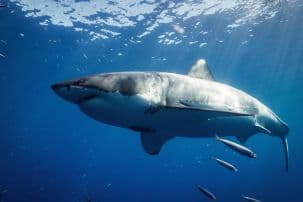
Earth Hour - Sharks in the News
Lesson6 of 11 in this unit
SecondaryYear 9 - 10EnglishText AnalysisEnvironmentalBiodiversityConservationOceansSocialSocial Action
Summary
Lesson Guides and Printables
Lesson Plan

Student Worksheet


Lesson Plan

Student Worksheet
